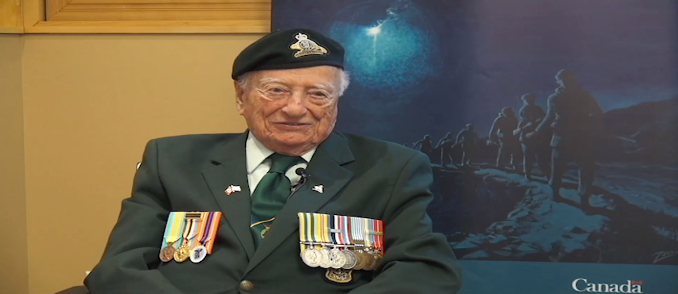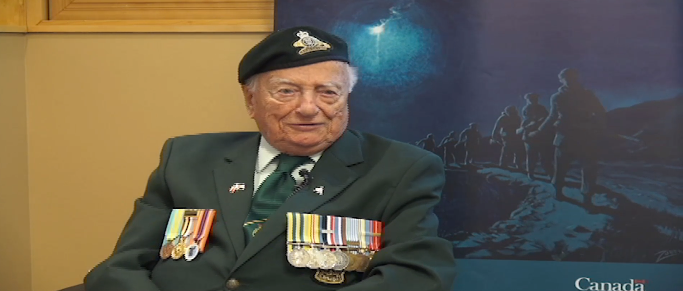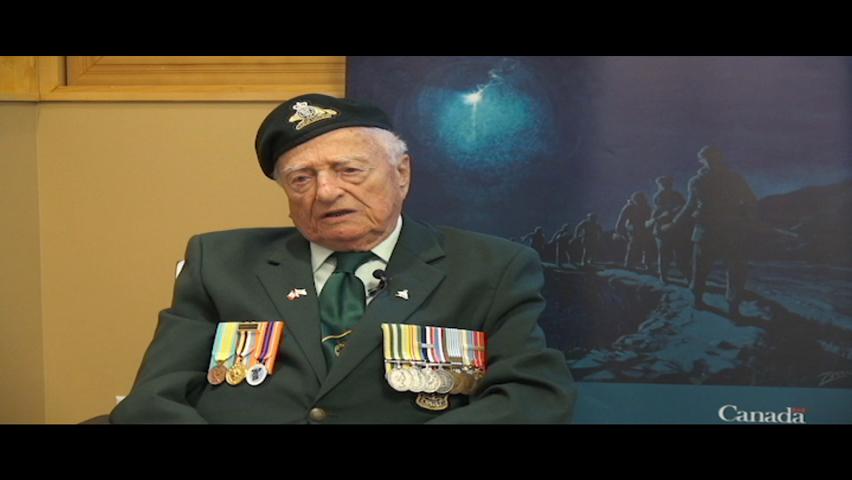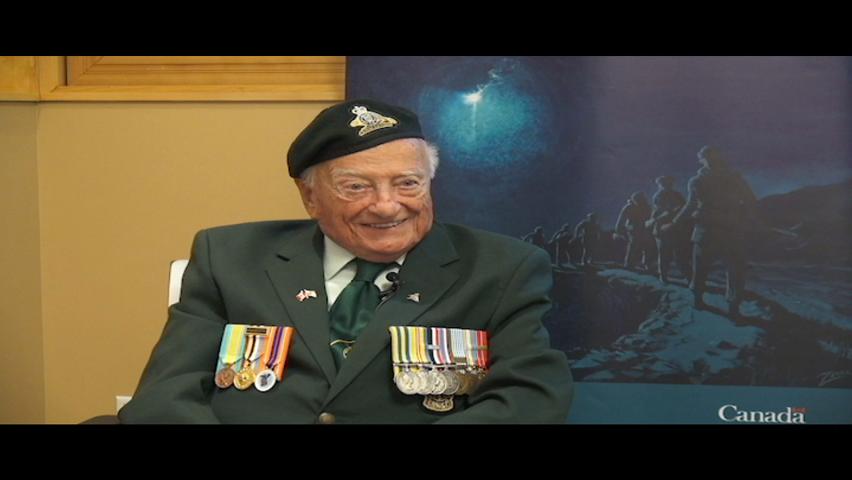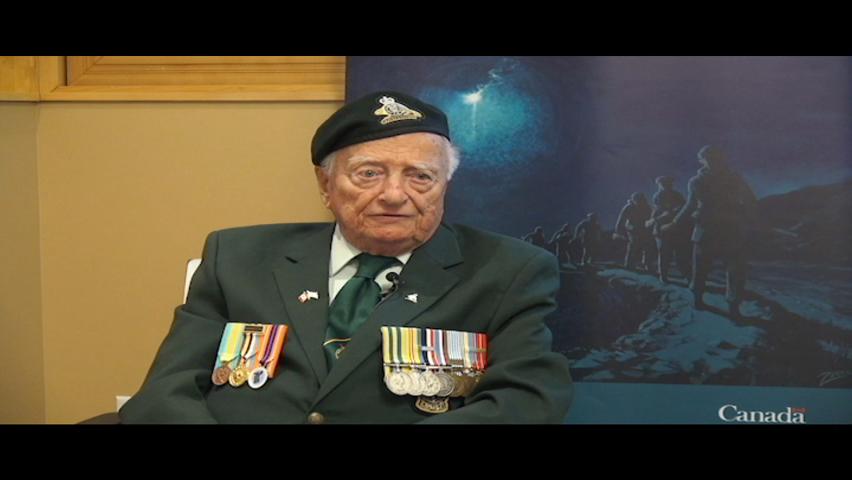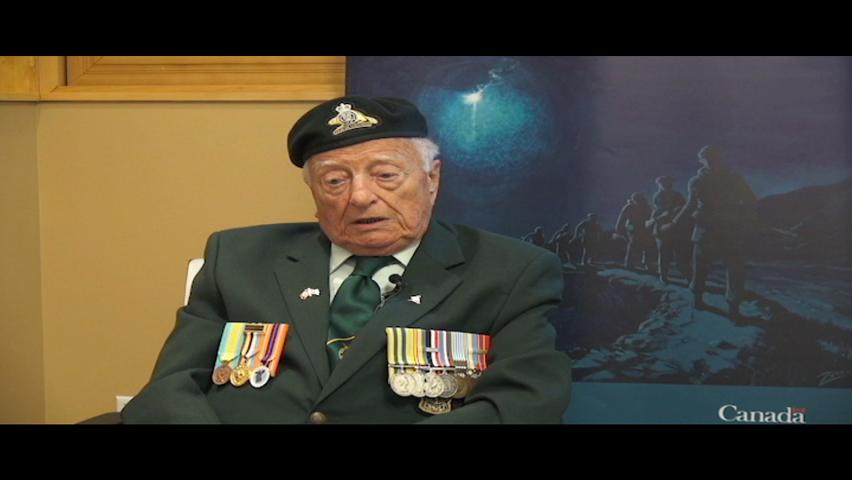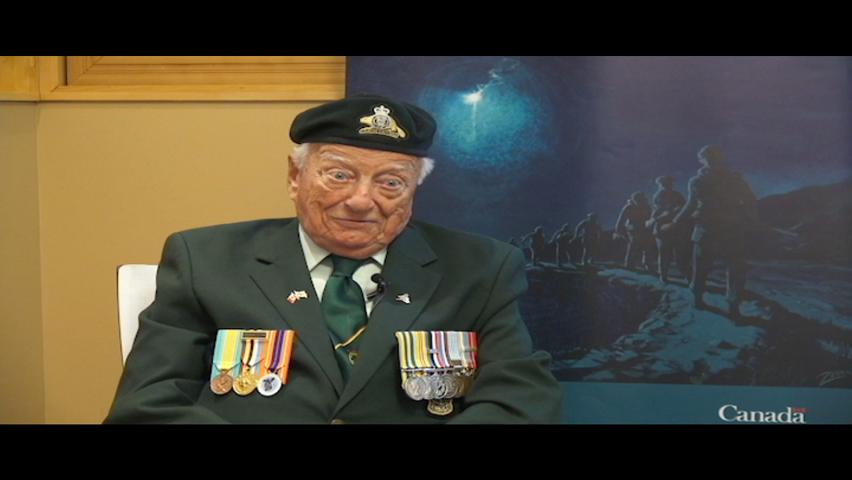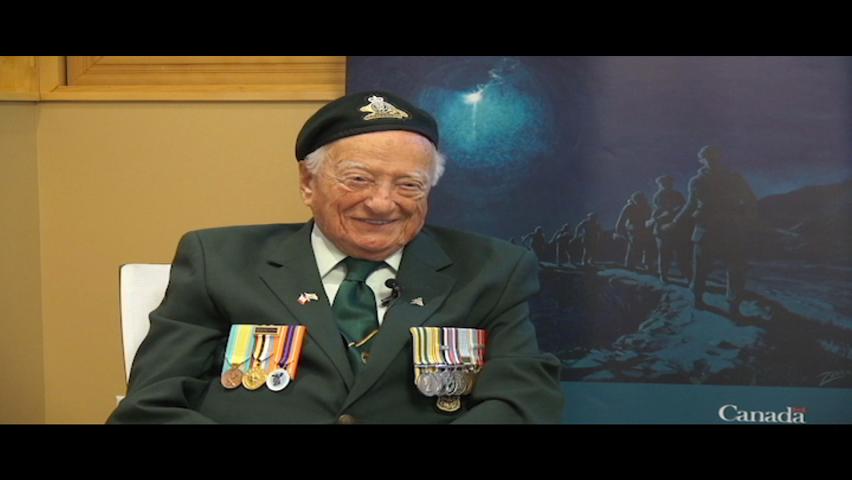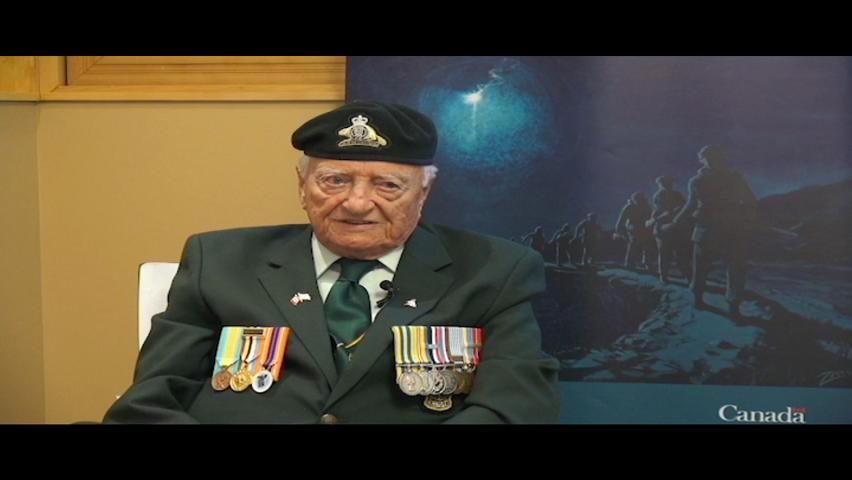Platoon Book, a Valuable Resource
Heroes Remember
Platoon Book, a Valuable Resource
Transcript
Description
As Lieutenant, Mr. Charland speaks about value of knowing a little bit about each of the soldiers in his command.
Claude Charland
Mr. Claude Charland was born February 27, 1929 in Montreal, Quebec. As an only child and born during the Great Depression, Mr. Charland was placed in a boarding school in hopes of experiencing a better life. After obtaining a high level of education, he made the choice to join the military. In 1948, he took part in the Canadian Officer Training Corp and underwent infantry training in Camp Borden followed by additional training in Val Cartier. In 1950 the Korean War started and Mr. Charland became an instructor for francophone officer recruits. In 1951, joining as a callout, Mr. Charland chose to be part of the Korean War. He joined with the 3rd Battalion, Royal 22nd Regiment and upon retirement held rank of Lieutenant. Mr. Charland holds great pride for his service during Korean War. In 2018 during the Korean Olympics, Mr. Charland had the great honour and privilege to be the torch bearer as part of Team Canada and carried the torch 100 metres through the rink grounds where he had served and played hockey many years before. Mr. Charland retired from the military in 1982 and remains very active in his community.
Meta Data
- Medium:
- Video
- Owner:
- Veterans Affairs Canada
- Recorded:
- May 23, 2018
- Duration:
- 3:47
- Person Interviewed:
- Claude Charland
- War, Conflict or Mission:
- Korean War
- Location/Theatre:
- Korea
- Battle/Campaign:
- Korea
- Branch:
- Army
- Units/Ship:
- Royal 22e Régiment
- Rank:
- Lieutenant
- Occupation:
- Infantry Officer
Related Videos
- Date modified:



